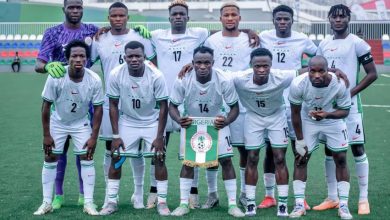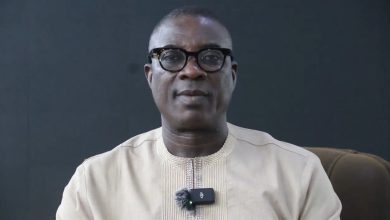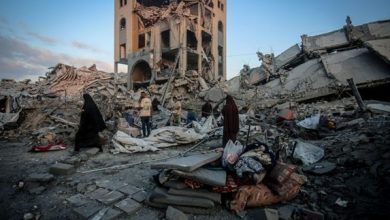BBNaija and the Cost of National Distraction in a Struggling Nigeria
In a country wracked by poverty, spiraling inflation, rising insecurity, and a general sense of hopelessness, one would expect the public’s attention to be riveted on issues of survival, governance, and collective progress. Instead, millions of Nigerians have found solace in a highly publicized television spectacle Big Brother Naija (BBNaija) a reality show that has grown into a cultural obsession. It is unfortunate that while Nigeria bleeds, a significant portion of the population remains entranced by a program whose core offering is conflict, nudity, and performative drama.
To be clear, BBNaija is not merely a television show. It has become a cultural phenomenon, one that reflects the deep hunger for escape in a society where people are desperate to forget their economic, political, and existential battles, even if only temporarily. But the question must be asked: At what cost are we indulging this distraction?
Launched as an offshoot of the Big Brother franchise in 2006, BBNaija has transformed from a casual entertainment format into a national talking point. From the moment a new season begins, it dominates the public discourse. It is the subject of social media debates, WhatsApp arguments, and even political commentary. From celebrities to street vendors, everyone seems to have an opinion on the latest housemate controversy, love triangle, or eviction. It becomes nearly impossible to avoid even for those who deliberately opt out.
Yet, while we engage with this spectacle, Nigeria continues to fall apart in many ways. Over 133 million Nigerians are now classified as multidimensionally poor, according to the National Bureau of Statistics. Fuel prices have more than tripled in less than two years, public education is in shambles, and electricity remains a luxury for many households. Young Nigerians face record unemployment and underemployment rates, while the healthcare system continues to crumble. Amid all of this, we reward a few individuals with overnight fame and hundreds of millions of naira, not for innovation or civic contribution, but for surviving 72 days in a camera-filled house doing largely nothing.
What message does this send to the average Nigerian youth?
It suggests that fame, not merit, is the currency of success. That theatrical behavior, not community impact, is what draws attention and wealth. That in a country where educational institutions go on strike for months, and entrepreneurship is stifled by lack of support, the surest path to recognition is through a reality TV platform that thrives on voyeurism.
To those who argue that BBNaija is “just entertainment” and should not be overanalyzed, it is worth noting that popular culture plays a powerful role in shaping social values and national aspirations. A program that commands the attention of tens of millions cannot be dismissed as harmless. It shapes how we think, what we value, and how we define success. It is especially dangerous when the line between entertainment and reality becomes so blurred that people begin to model their lives after housemates who are often rewarded for manipulative gameplay rather than moral integrity or personal growth.
Moreover, BBNaija often leans heavily on sexual content and emotional manipulation to keep viewers engaged. While some fans claim that the show promotes “human connection,” it is hard to ignore the fact that many tasks and scenarios are designed to stir tension, provoke intimate encounters, and generate viral clips. It is no wonder that even religious and moral institutions, including the Hisbah Board in Kano and other conservative groups, have raised concerns over the program’s social impact.
This is not a call for censorship or moral authoritarianism. Freedom of expression must be protected, and viewers should retain the right to choose what they consume. However, the wider concern lies in the disproportionate attention and legitimacy we have bestowed upon this show. Our collective fascination with BBNaija has created a scenario where even politicians and corporate brands now seek association with contestants and seasons, diverting attention from pressing national issues.
Interestingly, even Professor Wole Soyinka once remarked that the Big Brother franchise celebrates mediocrity and voyeurism. According to him, Africa’s adaptation of such formats often lacks intellectual substance and encourages passive spectatorship. Though others like Professor Kole Omotoso once defended the concept for its Africanization and cultural reach, even he acknowledged its overwhelming Western influence.
It is time we reflect deeply.
How can a country suffering from chronic power outages be obsessed with a program that requires 24/7 electricity to thrive? How do we justify a prize of ₦120 million to the winner of a game show while our university lecturers earn meagre, irregular salaries? Why does a nation of 200 million people reward theatrical survival with brand endorsements while its scientists, teachers, and human rights defenders remain invisible?
This editorial does not suggest BBNaija is responsible for Nigeria’s problems. It did not create poverty, poor governance, or the widening inequality. However, it is a symptom of our collective appetite for escapism at the expense of national development. When a people focus more on evictions and “ships” than on policy reforms, budget padding, or youth empowerment, the result is a culture that thrives on distraction rather than direction.
Entertainment is important. But it must never become a substitute for civic engagement or a mirror that glorifies our lowest impulses. We must begin to question what we consume and why. A society that elevates fame without value cannot build a future worth inheriting.
As the next season of BBNaija inevitably returns to our screens, perhaps the more meaningful vote we must cast is not for who wins ₦120 million but for the kind of society we truly wish to build.



